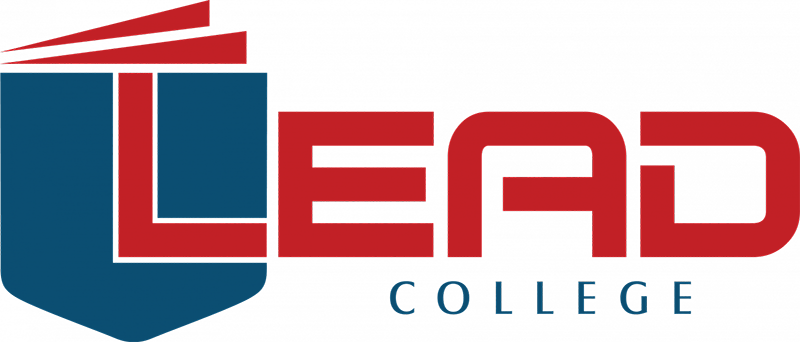Explore leading Australian Universities
Study Level Bachelor
Course Code 106245J
Study Method Class
Assessment Online Exam, Onsite Exam, Practical, Assignments
Start Date November 2025, March 2026, July 2026
Entry Requirement Grade 12
Duration 144 weeks
Price $68520
Discount 5%
Discounted Price $65094
About the Course
The Bachelor of Data Analytics provides you with valuable knowledge in data analytic lifecycles and applying key industry tools.
Get ready for an exciting career in areas including smart technologies applications, such as the Internet of Things, smart homes, robotics and deep learning. You’ll develop practical skills and methodologies to think differently.
As smart technologies evolve, they create massive volumes of data. Managing, interpreting, storing and securing this data is a challenge to existing technologies. We expect there to be a growing demand for dedicated data analytics organisations and experts to service them. As a graduate of the Bachelor of Data Analytics you’ll have the foundations needed to thrive as the industry grows.
Specialised electives will prepare you for a career in emerging industries including smart technologies and advanced artificial intelligence. You’ll be ideally placed to drive business innovation.
In addition, you’ll learn theories and practices in deep learning, neural networks and advanced smart algorithms. This course will expose you to machine learning tools and technologies that you can apply to investigate real world data problems.
Entry Requirements
Applicants must meet the academic entry requirements including prerequisites for their chosen course, and;
Applicants must meet the minimum English language requirement for their chosen course, and;
Domestic Applicants must be 17 years of age as at the commencement date of their chosen course or unit.
What will you learn
Bachelor of Data Analytics students will achieve the following course learning outcomes:
- Demonstrate a coherent understanding of fundamental theories and practices in computing technologies, and possess the ability to apply skills and knowledge of a selected computing discipline to solve contemporary real‐world problems.
- Design, develop and evaluate computing solutions in contemporary industry applications using available tools, technologies, and methodologies, with demonstrated understanding of business practices, ethics, and technological landscapes.
- Plan and deploy computing solutions for industry problems with demonstrated knowledge of industry best practice and business acumen.
- Investigate and recommend innovative computing solutions to complex industry problems, with the demonstrated ability to independently learn and critically analyse.
- Collaboratively lead a team of professionals to achieve synergetic goals and to effectively communicate processes and results to management and technical audiences.
With additional course learning outcomes specific to the Data Analytics discipline:
- Identify and evaluate solutions to data analytics problems based on business requirements and to design and develop effective data analytics applications using available specialist tools and technologies.
- Plan and deploy data analytics solutions for complex industry problems with demonstrated skills and knowledge of data analytics tools, methodologies and data science lifecycles.
- Investigate and evaluate the performance of data analytics systems in consideration of the business context and industry best practices and to recommend appropriate solutions.
What skills will you gain?
With a Bachelor of Data Analytics you will gain core skills in:
- Data visualisation
- Data modelling
- Up to date software and programming, including Tableau, Python, R, SQL and NoSQL, MATLAB
- Statistical analysis and strategy
- Data driven decision making
- Leadership and strategy
- Critical thinking and communication.
Career Opportunities
A career in data analytics will give you great job prospects.
Roles include:
- Data Architect
- Data Analyst
- Data Scientist
- Fraud Analyst
- Corporate Strategy Analyst
- Business (Intelligence) Analyst
- IT Systems Analyst
- Social Media Data Analyst
- Operations Analyst
- Marketing Analyst
- Applications Architect
- Enterprise Architect
Course Units
| Code | Course Unit | Description | Type |
|---|---|---|---|
| BN103 | Platform Technologies | Core | |
| BDA312 | Deep Learning Applications | Core | |
| BDA311 | Big Data Applications | Core | |
| BDA214 | Machine Learning | Core | |
| BDA213 | Data Analytics and Smart Applications | Core | |
| BDA212 | Statistics and Decision Models | Core | |
| BDA211 | Data Warehousing | Core | |
| BDA301 | Entrepreneurship and Innovation | Core | |
| BDA215 | Software Engineering and Project Management | Core | |
| BN200 | Network Security Fundamentals | Core | |
| BDA112 | Data Science Fundamentals | Core | |
| BN111 | Programming Fundamentals | Core | |
| BN110 | Information Systems Fundamentals | Core | |
| BN109 | Web and Multimedia Systems | Core | |
| BN106 | Networking Fundamentals | Core | |
| BN104 | Operating Systems | Core | |
| BB101 | Business Communications | Core | |
| BN204 | Database Technologies | Core | |
| BDA304 | Data Analytics Capstone Project 2 | Elective | |
| BDA303 | Data Analytics Capstone Project 1 | Elective | |
| BN322 | Software Defined Networking | Elective | |
| BE305 | Cloud Engineering | Elective | |
| BN324 | Enterprise Cybersecurity and Management | Elective | |
| BN311 | IT Security Management | Elective | |
| BN309 | Computer Forensics | Elective | |
| BDA324 | Intelligent Sensor Networks | Elective | |
| BDA323 | Applied Artificial Intelligence | Elective | |
| BDA322 | Data Science Mathematics | Elective | |
| BDA321 | Smart Industry Automations | Elective |



